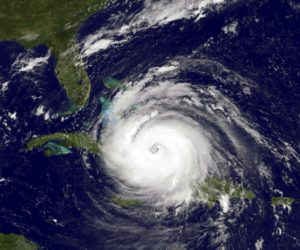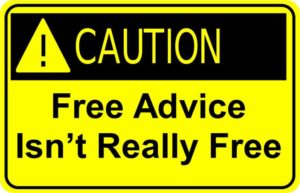Common Myths: Investing in Florida Real Estate from Canada
Every day I seem to hear another question based on false or incomplete information someone may have picked up from google, a friend or even another Realtor whom simply doesn’t know better. Here are a few of the most common myths I hear and the real information you need to bust them!
Canadian property owners are taxed higher than U.S. property owners
FALSE
In Florida, a Canadian property owner/investor is subject to the exact same property tax rules and rates as any other owner/investor, whether from Canada, the U.S, China or Mars! For a detailed look at how property taxes in Florida work, you can read more in our article “Estimating Florida Property Taxes” (Coming Soon)
 Insurance in Florida is expensive because of the hurricanes
Insurance in Florida is expensive because of the hurricanes
FALSE
While insurance premiums can be high within several miles of the coasts, most properties located inland, like here in Central Florida, have insurance premiums under $1,000 for an entire year. You can get a quote from an insurance agent quickly and easily for any property you may have an interest in. Generally, you will have the lowest premiums on newer properties (10 years or younger) that are not in a flood zone, and for condominiums as part of your condo association dues covers part of your insurable property.
More information about “Choosing the right insurance for your Florida Home” (Coming Soon)
Canadians can’t get mortgages in the US to buy investment homes
FALSE
During the recession, bank lending came to a near stop. One of the things you couldn’t find was a mortgage on an investment home, especially if you were not a US resident with US income. It has been a long time since the recession though and lending has gotten back to a new normal. Most banks have second home mortgage programs and some even have foreign national investment home loans as well. However, your best bet as a Canadian looking to mortgage the purchase of an investment home is to talk to a bank that has branches in both Canada and the US. The two banks most of our clients work with for mortgages are TD Bank and RBC Bank.
Financing availability can be one of the biggest advantages of investing in real estate vs. other assets, but it also has its additional risks that you should understand fully before considering
Check out “Benefits and Risks of using a mortgage as a Canadian Investor” (Coming Soon).
Also “The 3 most common ways to finance the purchase of a Florida Home From Canada” (Coming Soon).
Buying a Florida investment home is complicated.
Yes, there are several things that are different when buying an investment home here in the US vs. buying in Canada. Like any investment, you need to do your due diligence beforehand to make sure you set yourself up to avoid surprises. Consulting with the proper cross-border professionals is key to making this process much simpler and to guide you through each step along the way. Always keeping your end goal in mind.
Otherwise, start by reading “What to Expect When Buying a Florida Investment Home from Canada” (Coming Soon)
Canadians have to pay a high income and capital gains tax in the US.*
FALSE, unless you set yourself up wrong!
As a Canadian investing in US rental property, you are going to be subject to US federal income tax under the same IRS rules for rental income as a U.S. resident; if you make the proper election on form W-8ECI to treat rents as “Effectively Connected Income”. With this election, a 30% withholding does not have to be taken out of your gross income and you will be taxed based on your net income after expenses. With depreciation expense calculated in your taxable income, you potentially will have a $0 US tax liability most years.
Also, any taxes you pay in the U.S. (which will be lower than what you owe in Canada 99% of the time) can be credited on your Canadian taxes owed. Simply put, concern yourself more with your Canadian tax liability vs. the US and just make sure your cross-border tax advisor sync’s your expenses so that you can get 100% credit on your Canadian taxes for any US taxes paid.
There are special rules when it comes time to sell and capital gains taxes. However as long as the rules are followed, your capital gains rate will be equal to those paid by US residents.
More details in our article “The Canadian Landlords Guide to the IRS” and “U.S. and Canadian Cross-Border Taxes, Simplified”
The US will tax my worldwide income if I buy a home there!*
FALSE
You are only liable for income taxes due based on the income you make from a business or property here in the US. You are even treated just like a resident would be with all the same deductions, credits and loopholes that are available to a US resident. Plus, any taxes you  pay in the US can be used as a direct credit against your taxes due in Canada.
pay in the US can be used as a direct credit against your taxes due in Canada.
So long as you don’t become an actual resident of the US (the rules are complex, consult a tax adviser, but basically don’t be present in the US for more than 180 days in any 1-year period), your earnings from Canada will not be subject to US taxes.
Lastly, also be aware of the potential for US estate tax should you or your spouse that holds title to the property die. If you are not set up properly and have more than 11 million dollars in assets worldwide, the US may take a hefty estate tax.
Read more “The Canadian Landlords’ Guide to the IRS” and “How to Hold Title to US property as a Canadian” (Coming Soon).
 *This is NOT tax advice, just a general rule of thumb. We are not licensed tax professionals and don’t pretend to be! Always consult with a qualified cross-border tax specialist about your particular tax situation and how any of the strategies we talk about apply to you.
*This is NOT tax advice, just a general rule of thumb. We are not licensed tax professionals and don’t pretend to be! Always consult with a qualified cross-border tax specialist about your particular tax situation and how any of the strategies we talk about apply to you.
I can use my rental home when I come down to visit.
FALSE, unless…
If you are buying a pure investment home that will be rented out long-term to a tenant, expecting to be able to use the home yourself won’t be practical. Long-term tenants have the right to possession and won’t want to rent a home that a stranger can come down and stay in at any time. Even if there is a short time between when a tenant moves-out and a new one moves-in, with a great manger the time the home is vacant will be very short. Plus, during this time there may be workers in the home preparing it for a new tenant and be unfurnished since long-term rentals do not come furnished.
If you intend to only rent out a home weekly or daily to other vacationers, sure you can book your stay anytime it’s available! However, here in Central Florida at least, a home must be zoned to allow for “short-term” rentals. Zones that allow this offer a much different investment profile than properties that would attract long-term residents and is a much more complex a subject to get into here. “Which is Better Long-Term or Short-Term Rental Property” (Coming Soon)

